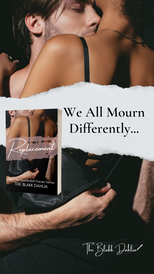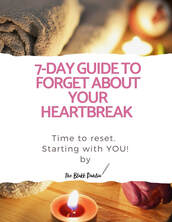|
Staring at a blank page The usual routine of writing. You’ve made time on your schedule and stuck to the plan of sitting down to work on your project, blog, and/or book. You open your journal or computer then find yourself wracking your brain trying to fill the blank page with creative and profound words. Just something that will outdo your last body of work. Nothing comes to mind (except for personal errands you forgot to run or other aggravations from the day). You can’t think of what to put on the page to save your life. It's as if a bottleneck of creativity is deadlocked in traffic, waiting to reach your brain. Finger and neck stretches fail to do the trick. Looking around the room isn’t jogging your memory either. Eventually, you’re exhausted and you complain about it on Twitter or find something unproductive to do. It pains you to even think about it, but you love to write so why is this happening? According to an article published by Dudley Court Press (“The Most Common Causes of Writer’s Block”), there are four main reasons for Writer’s Block:
 What To Do To gain control over your Writer’s Block experience, here are some tips to incorporate into your creative process to overcome it and be ready to begin again: 1. Don’t force it. Making yourself write anyway will only result in words, sentences, and paragraphs that won’t flow with what you’re truly capable of. It’ll only stress you out further along the way. Understand that these feelings are part of the process and that it happens to all writers. You’re not a true writer until you say the words “I have writer’s block!” 2. Figure out what’s blocking you. Although normal, your Writer’s Block may be attributed to outside causes. Pinpoint what is going on inside that doesn’t allow you to focus. After identifying the problem, find healthy ways to eliminate them and put the writing away to do a few self-care activities. In the article previously mentioned, there are a few main causes of Writer’s Block. Reviewing those will help in determining what is hindering your process. Many times, our mind and bodies send a signal to alert that there’s something wrong. Explore those signs, dig deeper; they could be your saving grace in the long run. 3. Step away. Creativity is a process. It hits you when you least expect it, and you can't rush it. Although some authors/writers may be on deadlines, you have to give yourself time to step away and refuel. Include that time in your writing schedule, if possible. You can’t pour from an empty cup so taking a break is imperative. Don’t worry, once a creator; always a creator so the words, scenarios, and ideas WILL return. You just have to do what is necessary to allow your creativity to flow effectively and organic. 4. Get inspired: Take a walk/Read/Watch TV. A brief walk, giving your body fresh air can aid in clearing out the clutter in your mind. Along your walk, you may even feel a spark of inspiration just by passing through nature and/or city surroundings. Take in what you see and allow that to motivate you to get back to be descriptive in what you see and how it makes you feel. Reading also helps in Writer’s Block. All great writers are great readers. This is how we learn and grow within our respective genres. Sitting down with your favorite book can ignite inspiration better than sitting within your frustrations. TV isn’t just for binging on your favorite show. Various series, sitcoms, and movies can help you de-stress along with refueling the writing. Watch the characters and their gestures: describe each movement of the bodies and facial expressions. Find a way to relate to them and put it into words in your mind. Ask yourself: What made you laugh? What made you cry? What pulled out your inner emotions? The answers will often pull you back into focusing on developing your stories.  5. Journal your feelings. Take a breath and write down these feelings within the Writer’s Block experience. Go deep into how it’s making you feel and the random thoughts running through your mind at that time. Take heed to the emotions ranging from anxiety to anger. It doesn’t have to be an entire diary entry. Make a jot list of words that express what you’re feeling in the moment. This journal entry and/or list can help you once you get back in the saddle to writing. Developing a character based on your Writer’s Block emotions gives readers a real-time experience while exploring your words. Whether it is a book, blog, open letter, long-form content, etc. you want to put out the best work you can. All of the causes, tips, and resolutions to combat Writer’s Block points to one common denominator…Taking care of yourself. Mental, physical, and emotional health is important to all facets of your life. Even within creative works. Pay attention to the warning signs of your brain feeling cluttered and overwhelmed. Pay attention to your body when it feels sluggish. Pay attention to the frustration you feel. Yes, your fans can’t wait to read your next piece. But you want to live to enjoy the raving reviews! Lastly, always remember that Writer's Block doesn't mean you're finished. One day, one week of nothing on a page does not end one’s career. Rest up, then get back in the game! Share your tips below! What do you do when you experience Writer’s Block? The Blakk Dahlia (E. Alexcina Brown) is a New York City author/blogger from Macon, GA. Recently, she released the book series, the Heartbreak Diaries outlining different perspectives of heartbreak. The Dahlia Diaries is a lifestyle blog penned by The Blakk Dahlia, sharing her story in NYC along with life lessons and tips she's learned in her journey.
0 Comments
Leave a Reply. |
"I LOVE to write and create. These are the diaries of how I work and deal in my world of writing and LIFE!"
- The Blakk Dahlia from the Heartbreak Diaries Book Series
Important LinksCategories
All
Archives
May 2024
|








 RSS Feed
RSS Feed
